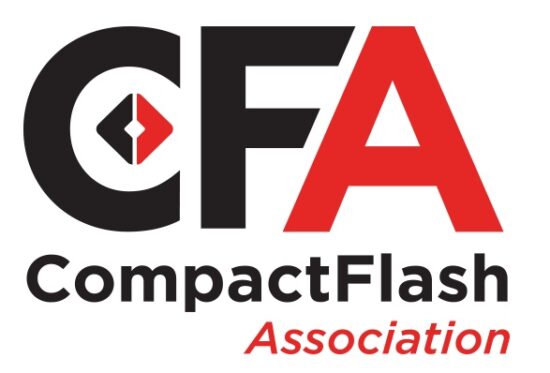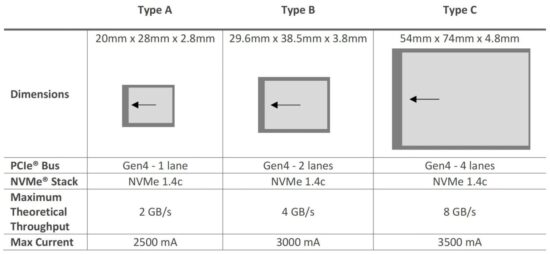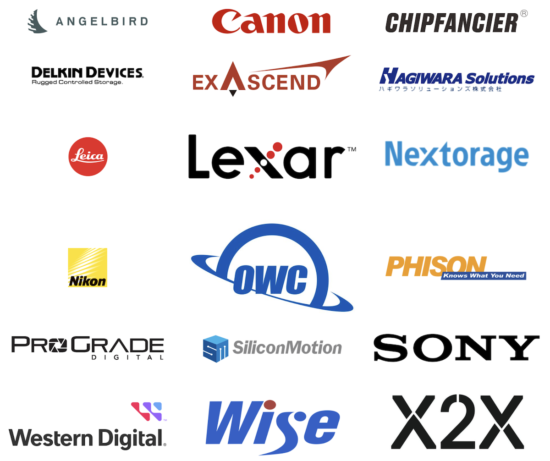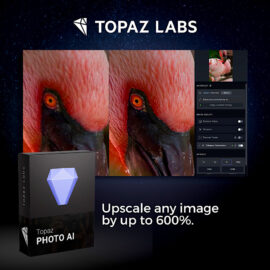
The latest CFexpress memory card update 4.0 will double the speed to 4 GB/s while still being backward compatible:

CompactFlash Association members:
CFexpress 4.0 delivers double the theoretical throughput of CFexpress 2.0 while maintaining the same form factor
LOS GATOS, California – CompactFlash Association (CFA), the organization responsible for professional removable media specifications such as CompactFlash®, CFAST®, XQD®, and CFexpress® announces the release of the CFexpress 4.0 logical and physical specifications increasing the performance of the existing CFexpress 2.0 specifications while maintaining backward compatibility targeting the professional imaging and industrial markets requiring high-performance data capture and transfer.
CFexpress 4.0 is an evolutionary specification riding on the great success of CFexpress 2.0 employing the industry standard PCI Express® (PCIe) Gen4 bus and NVM Express (NVMe) 1.4c logical interface for even higher performance and efficient NAND Flash access. With its three form factors, CFexpress 4.0 continues to support diverse performance levels to match various market requirements maintaining consistent electrical, logical, and physical interfaces while setting realistic power consumption targets for wider adoption of the CFexpress 4.0 for battery-powered applications in the imaging and industrial markets. Utilizing widely adopted open standards allow the use of established development platforms saving development time, cost, and effort.
CFexpress was developed in 2016 with the charter to become a removable media standard that can span various vertical market segments providing a stable and future-proof platform with economies of scale. Since then, the standard has been widely adopted by the imaging and industrial market segments.
Performance
With the adoption of PCIe Gen4 in CFexpress 4.0, the media cards can theoretically achieve double the throughput performance compared to PCIe Gen3 of CFexpress 2.0 while maintaining backward compatibility. CFexpress 4.0 along with CFexpress 2.0 shall provide flexibility in the choice of performance, power, and size requirements for target host devices based on their requirements.
Form Factor
The three card types – Type A, Type B, and Type C – support different host form-factor and performance requirements while maintaining a consistent electrical, logical, and physical interface. The mechanical dimensions of each card type are specified allowing adaptor cards for smaller card types to fit into larger card sockets. Metal lids provide physical robustness to withstand use in harsh environments while providing easier thermal management for hosts.
Scalability
CFexpress 4.0 allows seamless migration from CFexpress 2.0 by utilizing the same underlying bus and logical interfaces of PCIe and NVMe while maintaining the exact same form factors. This allows the preservation of earlier investments made in CFexpress cards.
CFA is a standards body and trade association that works closely with its ecosystem partners in the development of new removable media standards and markets. The earlier CFexpress 2.0 Type A and Type B standards have been widely adopted by high-end imaging hosts.
“Adoption of the higher performance CFexpress 4.0 for removable media storage will support current and future needs of professional photographers, videographers and cinematographers enabling higher resolution, frame rates, and color depth leveraging PCIe Gen4. CFexpress 4.0 will further cement CFexpress as a standard in the imaging industry,” said Hiroshi Noda of Canon and co-chairman of the CFA board.
“With the evolutionary approach in defining the new CFexpress 4.0 specifications, end users can preserve their investments made in CFexpress 2.0 removable media cards while enjoying cutting-edge use cases with the higher performance CFexpress 4.0 cards. This is a win-win for the installed base and the growing CFexpress ecosystem,” said Nobuhiro Fujinawa of Nikon and co-chairman of the CFA board.
“With its three form factors maintaining a consistent electrical, logical, and physical interface, CFexpress 4.0 will allowprofessional photographers, videographers, and cinematographers to scale seamlessly amongst the various use-case scenarios demanded by the host cameras. It is also a welcome approach for host manufacturers since the development cycle can be reduced significantly,” said Hiroshi Machida of Sony Corporation and CFA board member.
CFA is also preparing a new specification for VPG (Video Performance Guarantee) for higher sustained video recording which shall be released in the near future.
The new CFexpress 4.0 specifications are available for CFA members only. CFA invites host and media companies interested in supporting the new CFA specifications to join CFA as members. Membership of CFA also enables participation in various workgroups contributing to CFA’s technical advancements and marketing initiatives.
More information can be found at http://www.compactflash.org.
About CompactFlash Association
CompactFlash Association (CFA) is a standards body and trade association founded in 1995 that has been defining open-standard removable media solutions. Standards developed and defined by CFA are widely adopted by professional and prosumer digital cameras and camcorders as well as various industrial applications worldwide. CFA consists of over 80 member companies with a dynamic ecosystem contributing to the standardization of future removable media technologies.
- CompactFlash®, CFast®, XQD®, and CFexpress® are trademarks that CompactFlash Association licenses royalty free to its members.
- CFast® and CFexpress® are trademarks of CompactFlash Association.
- CompactFlash® is a trademark of SanDisk LLC.
- XQD® is a trademark of Sony Corporation.
- PCIe® is a trademark of PCI-SIG.
- NVM Express® is a trademark of NVM Express, Inc.










